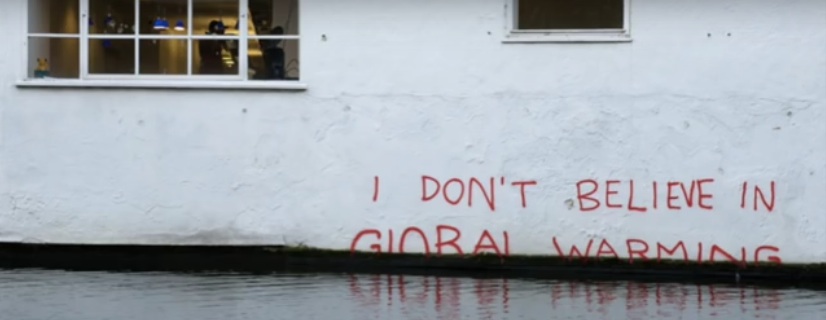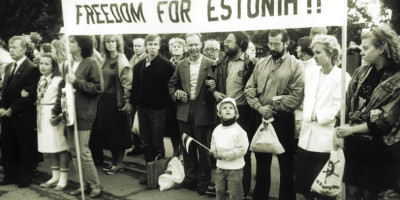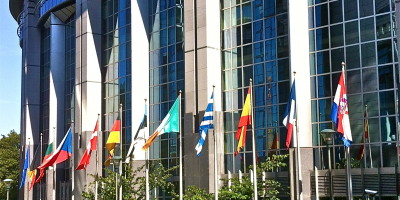Confusing, isn’t it? We hear from world leaders like Barack Obama that global warming is ‘real, man-made and dangerous’. Then friends post articles on Facebook telling us the panic is all a hoax, that the figures are all manipulated, and that the global frenzy is all part of a one-world government plot motivated by a trillion-dollar global warming industry.
Yet others say beware the doubt-brigade (the hoax-theory people), fueled by a propaganda machine protecting the interests of the oil industry.
So who can we believe? The problem seems so complex, so far away, so big and so confusing. What can we do other than shrug our shoulders and leave it to the government, the business world and specialist organisations? Besides, many Christians believe Jesus will come back soon and this earth will be replaced by a new earth and a new heaven. Why bother with a lost cause?
Restoration
Let me try to respond to this last objection first. Many do read into the Bible an end-time scenario where this planet gets destroyed and the faithful remnant are taken elsewhere. The main passage supporting this view is Peter’s second letter, chapter three. He talks about the earth being destroyed by fire, just as it was destroyed by water in Noah’s day. So if that really means total destruction, which planet did Noah land on with his ark after the flood? Obviously it means ‘purged’ or ‘purified’, not ‘destroyed’. Which makes sense of the context in which Peter then asks his readers (verse 11), what sort of lives should you live now in the light of this future? Pure, holy lives, he answers.
Ah, but what about the new heaven and new earth Peter talks about? Space doesn’t permit a full response here, but Peter uses the word ‘kainos’ for new, meaning ‘renewed’, rather than ‘neos’ meaning brand new. God’s purposes are for a renewed earth–restoration, not destruction! Doesn’t that fit with what Paul says in Romans 8 about creation groaning waiting to be liberated (not destroyed) from the bondage to decay?!
So, we’re stuck with this planet for a long time. God’s first instructions to the human race were about stewarding the earth, instructions that have never been rescinded.
But who can we believe about climate change amidst this cacophony of voices? My starting point is to listen to those who take God’s Word seriously, and who also recognise the strengths and limitations of modern science. A Rocha, for example, is a global network of Christians taking the stewardship mandate seriously and working to show God’s love for all creation. We partnered this year with A Rocha at the State of Europe Forum in Riga, and plan to do so again in Amsterdam at the next forum, May 8 & 9.
Vigil
In Paris right now at the UN Climate Change Conference, COP21, A Rocha is among those bringing a Christian voice to the climate discussions. A Rocha accepts ‘the overwhelming scientific consensus that current climatic changes are predominantly due to human action, and that urgent radical action is necessary to prevent the catastrophic risks of runaway climate change’. In an era of multiple severe environmental threats that are largely caused by humanity’s greed and over-consumption, they argue, our Christian faith gives us both a motivation to act decisively and a position of hope regarding the worth of our actions.
They have held a prayer vigil and also public panel discussions with experts including atmospheric scientist Dr Katharine Hayhoe. Recently at an A Rocha event in Vancouver BC, Canada, Dr Hayhoe contended that climate was changing because of our actions, and that therefore our choices mattered. (This link leads to her talk, a very helpful presentation of what science can and cannot tell us, and where our Christian faith plays the key role.)
We could choose to lessen our impact on the climate, she argued; to adapt to the effects such as drought, rising sea levels, and storms of increasing intensity; and we could choose the degree to which we will suffer. But science did not take us further, she said. It could not tell us how to choose among the options. Many were responding in fear to talk about climate solutions; fear about change, fear about economic hardship, fear about taxes. Such fear fed much climate-change denial today, she continued, but God had not given us a spirit of fear but of power, love and a sound mind.
This was where faith and values came in–especially Jesus’s call to love our neighbour. “Let’s use love to consider how our actions are impacting other people,” she concluded. “And let’s move forward not in fear, but in power – recognizing that we can accomplish great things.”
Till next week,



